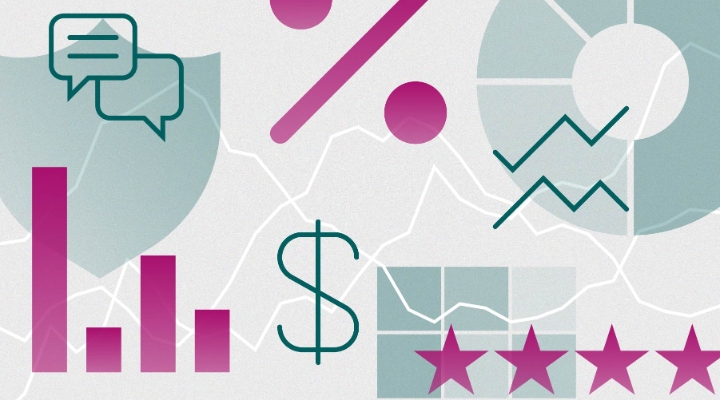
The decision for North and South Korea to field a joint team at this year’s Winter Olympics has sparked speculation about what a possible reunification might mean for the countries – and what it could mean for investors.
Korea split in 1945, shortly after the Second World War, and there has been ongoing tension between the divided nations ever since. Yet this month, athletes from the two countries marched beneath a unified flag and entered a joint women’s ice hockey team into the Winter Olympics, hosted in Pyeongchang, sparking speculation of an end to their long rivalry. But experts point out that a unification would not be simple.
How Do the 2 Countries Compare?
South Korea is ranked 11th in the world by GDP according to the World Bank, with its economy forecast to grow 2.8% this year. The country’s stock market, the Kospi index, is up more than 15% over the past year alone. North Korea’s GDP is £8.9 billion to South Korea’s £1 trillion, and its population is around half of the South’s at 25 million. The average income per person in North Korea is around 5% of the average South Korea income.
Where the North is a notoriously closed economy, the fast-growing South is home to international companies including car makers Hyundai and Kia and electronics firm Samsung, and has attracted investor interest in recent years. Other world-leading businesses hailing from the country include SK Hynix, the second largest computer memory chip maker, Hyundai Heavy Industries, the world’s largest ship builder, and LG Chem, a leading supplier of car batteries.
While unification might be politically desirable, some experts are concerned it could be an economic disaster. Ben Surtees, manager of the Jupiter Asian Fund, says: “For South Korea, reunification could mean replacing the threat of war with the threat of economic peril.”
But South Korea is not without its own problems. Last year its President was impeached and imprisoned for corruption following protest rallies, and China banned some citizens from visiting the country in reaction to its decision to install a US missile defence system. Regular turmoil means the market trades at a discount to is Asian peers.
What Could Be Gained?
There could be benefits from a merger: North Korea has mineral deposits, such as coal, which have provided some energy independence, and reunification would reduce the defence budgets of the countries because the threat of war would be removed; it could also open up new trading routes which could improve exports.
Surtees says: “The North Korean threat is a major contributor to South Korea’s discount but even this is outweighed by its poor governance record. South Korean companies are plagued, in our view, by boards lacking independence and more questionable business ethics.”
But the tide could be turning; a new liberal Government has introduced a stewardship code which may encourage companies to improve governance and boost dividend pay outs. The introduction of a similar code in Japan helped to improve company share valuations as well as stopping poor practices.
Funds to Invest in Korea
Mark Williams, manager of the Liontrust Asia Income fund, has recently increased the weighting of South Korea in his portfolio to 10% – the highest since launch, and the third largest country exposure in the fund.
He says: “Our increased conviction has nothing to do with thawing links between North and South Korea, and everything to do with corporate improvements in the country.”
The impeachment of the President, he says, is evidence of systemic change in the country. Williams, who invests in four companies in the country including Samsung and LG Chem, adds: “As a result of the improving corporate culture, it is increasingly easy to find companies that return money to shareholders in South Korea.”
In a visit to the country last year he met with 19 companies, all of whom had paid out dividends, with an average yield of almost 3%. His fund has returned 39.1% over the past three years.
Growth potential and improving corporate governance provide a “potentially appealing outlook for a market that still remains deeply discounted”, according to Surtees, whose fund has 16% of its assets in the country and has returned 35.4% over the past three years.
Among other funds which can provide exposure to the region is the Morningstar Gold-Rated First State Asia Focus fund, which has 8.9% of its assets in South Korea and has returned 16.4% over the past year. Morningstar analyst Germaine Share said it is “one of our favourite investment propositions in the region”.
The JPM Emerging Markets fund has a longer tracked record, having launched in 1994. The Bronze-rated fund, which has 5.4% of its assets in Korea, has returned 47.3% over the past three years.
For now, reunification remains a hypothetical scenario, but the system changes in the South are already starting to happen, and savvy fund managers are taking advantage now while shares are still cheap.





























